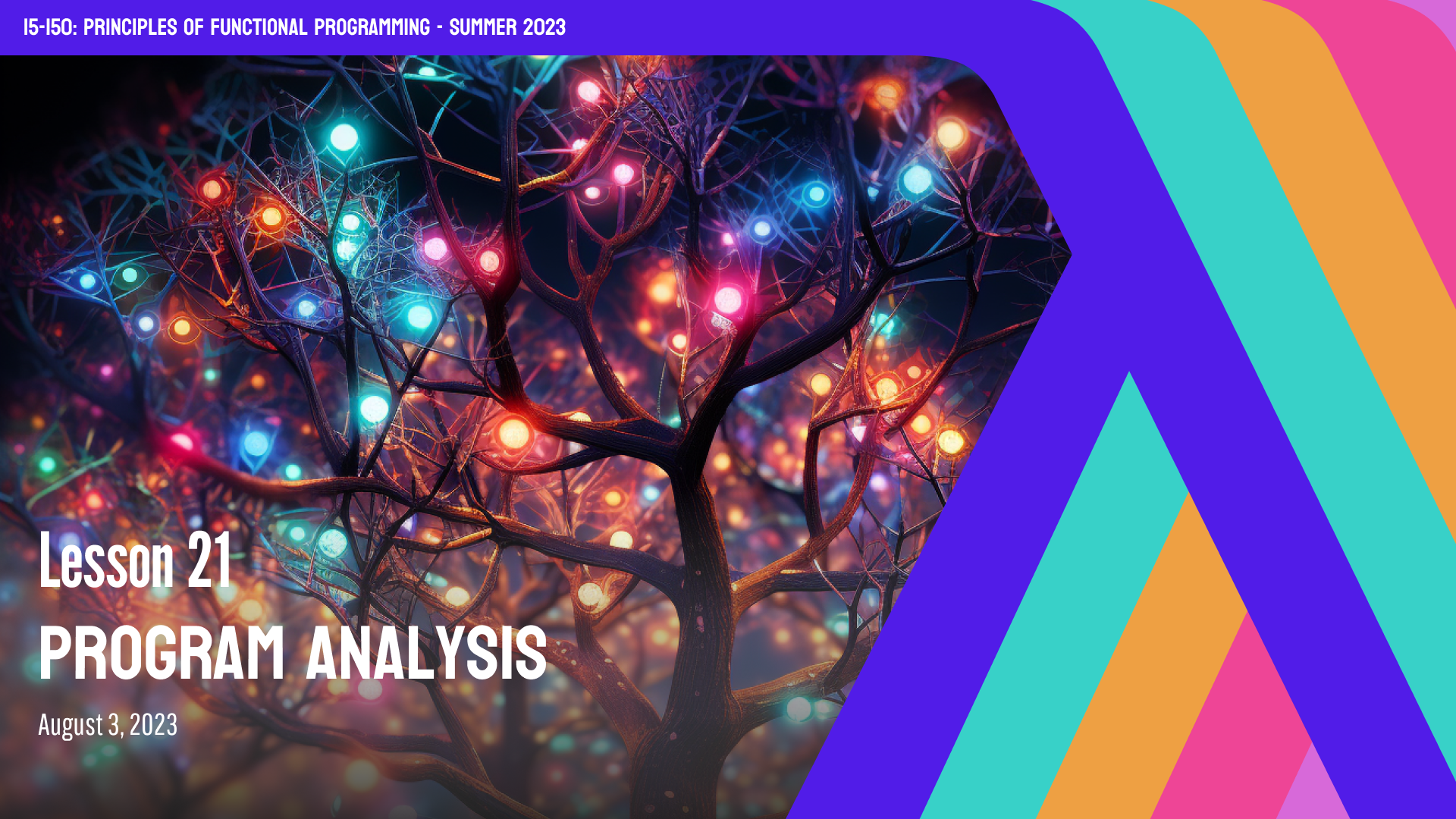Lecture 21 - Special Topics: Program Analysis
In a world which is being increasingly dominated by software, as well as the challenges that come with its inherent insecurity, it is extremely important that we be able to keep up with the sheer volume of code being produced. This leads us to program analysis is the art of obtaining information about a program through programmatic means.
Due to the Halting Problem, it can be demonstrated that it is impossible for any program to be completely accurate in assessing any property of a given program. The field of program analysis circumvents this by performing analyses with heavy approximations, which allow termination, while giving back potentially inaccurate results.
In this lecture, we discussed different kinds of program analyses, which must compromise on properties such as termination, accuracy, and thoroughness, due to the impossibility of the task. We also introduced dataflow analysis as a classic technique that is used to ascertain approximate information about a given program.
I also talked about what I do at Semgrep, working on program analysis for securing code by searching for undesirable parts of programs in many different languages. I explained some of the technical merits of Semgrep, by utilizing a generic representation for many different languages, as well as performing analyses via simple recursive tree matching on the source program, as opposed to descending to the lower levels of the program.

